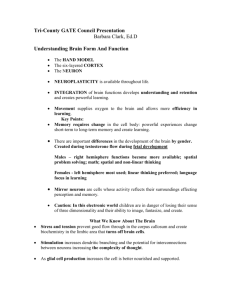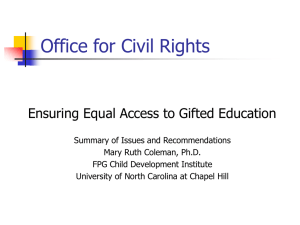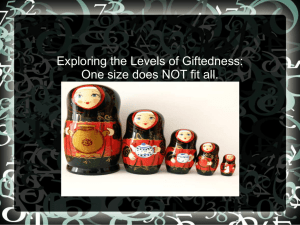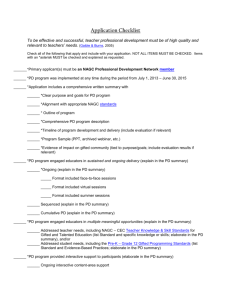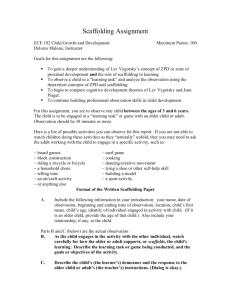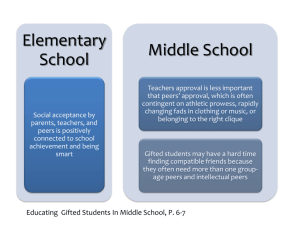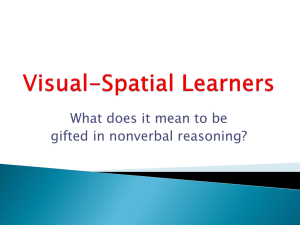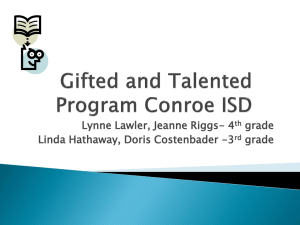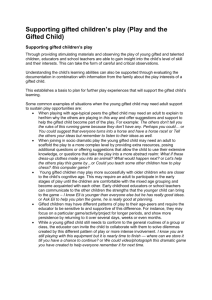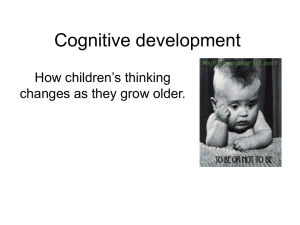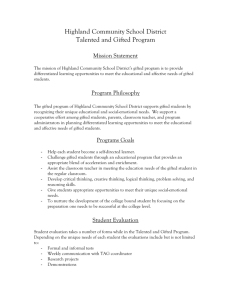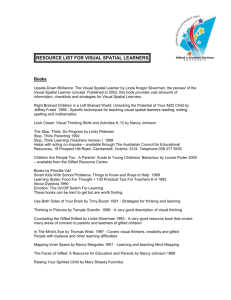Socio cultural theory (docx - 28.73kb)
advertisement
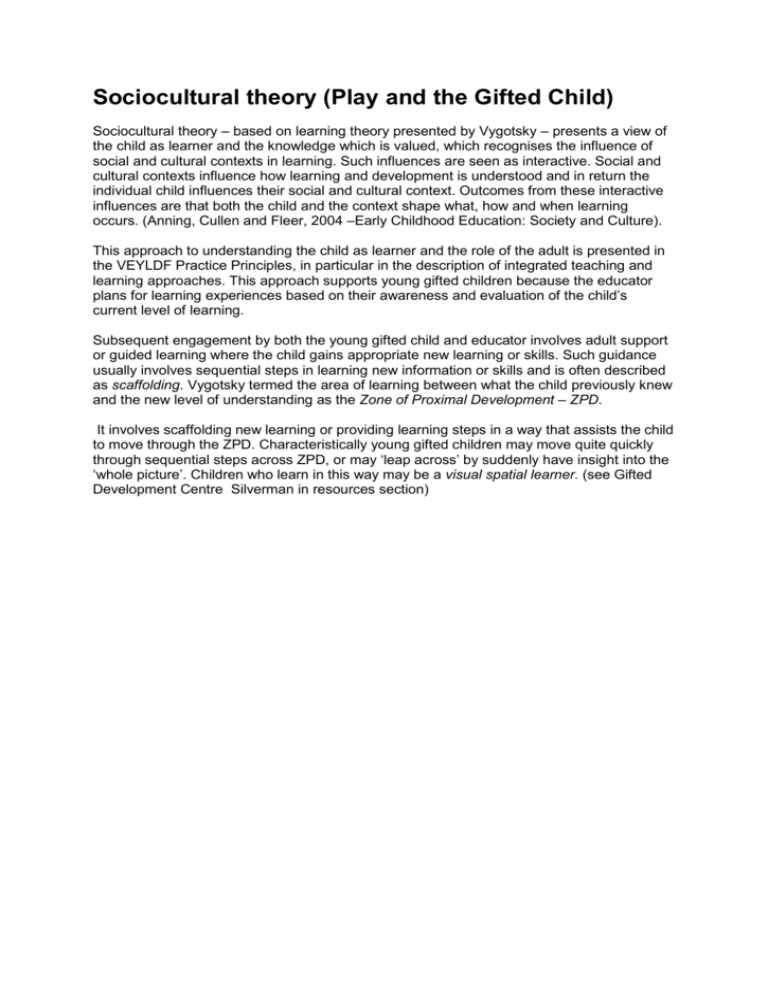
Sociocultural theory (Play and the Gifted Child) Sociocultural theory – based on learning theory presented by Vygotsky – presents a view of the child as learner and the knowledge which is valued, which recognises the influence of social and cultural contexts in learning. Such influences are seen as interactive. Social and cultural contexts influence how learning and development is understood and in return the individual child influences their social and cultural context. Outcomes from these interactive influences are that both the child and the context shape what, how and when learning occurs. (Anning, Cullen and Fleer, 2004 –Early Childhood Education: Society and Culture). This approach to understanding the child as learner and the role of the adult is presented in the VEYLDF Practice Principles, in particular in the description of integrated teaching and learning approaches. This approach supports young gifted children because the educator plans for learning experiences based on their awareness and evaluation of the child’s current level of learning. Subsequent engagement by both the young gifted child and educator involves adult support or guided learning where the child gains appropriate new learning or skills. Such guidance usually involves sequential steps in learning new information or skills and is often described as scaffolding. Vygotsky termed the area of learning between what the child previously knew and the new level of understanding as the Zone of Proximal Development – ZPD. It involves scaffolding new learning or providing learning steps in a way that assists the child to move through the ZPD. Characteristically young gifted children may move quite quickly through sequential steps across ZPD, or may ‘leap across’ by suddenly have insight into the ‘whole picture’. Children who learn in this way may be a visual spatial learner. (see Gifted Development Centre Silverman in resources section)





